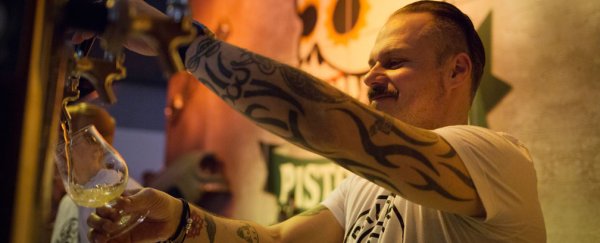
The conventional wisdom is to never drink and drive, (disclaimer: this still applies, sorry but there's just no getting out of it) but a new innovation pioneered in New Zealand is linking those two activities via a specially designed petrol that repurposes beer by-products into an environmentally friendly biofuel.
DB Export 'Brewtroleum' (love the name!) is the brainchild of two Kiwi businesses, brewery DB Export and the Gull petrol company. Combining their respective talents, the pair devised a method where the leftover waste products from DB Export's brewing processes – namely excess yeast and grain – are separated and distilled into ethanol. The ethanol is refined until sufficiently pure, then blended with petrol to create a 98 octane engine fuel.
According to its makers, Brewtroleum creates up to 8 percent less carbon dioxide than regular fuel, and its use of local grain and yeast leftovers will contribute to sustainability and lessen New Zealand's dependence on imported fuels.
And while will we love Brewtroleum's tongue-in-cheek 'Save the world' advertising, we should point out that for all its environmentally friendly credentials, it remains primarily a gasoline-based petrol. But it's still better than no biofuel at all, because research has shown that biofuel use does play a role in lowering our overall greenhouse gas emissions.
According to New Zealand's Automobile Association, a driver using 30 litres of biofuel in their vehicle could save as much as 250 kilograms of carbon dioxide emissions in a year. Of course, not all makes of car are compatible with biofuels, although the majority of automobiles sold in New Zealand do support E3 or E10 (or both). Worth having a think about!
And speaking of using waste products to power our vehicles, there are even more outlandish alternative fuel sources than leftover beer scraps. Earlier in the year a bus fuelled by cow manure broke a land speed record in England, and the same kind of gas-powered technology even uses human waste to fuel buses on a route between Bristol and Bath. Compared to those, beer power looks comparatively tame.
